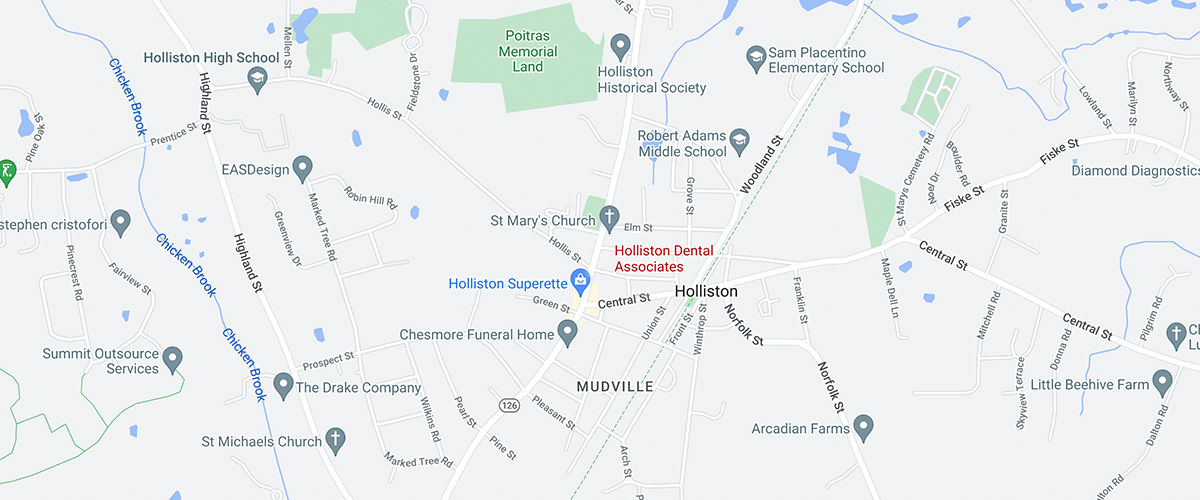When Is a “Cavity” Not a Cavity?
January 29th, 2025

Is this a trick question? After all, you probably already know quite a lot about cavities:
- It all begins when bacteria-filled plaque sticks to teeth and starts to attack enamel. How?
- Because the bacteria in plaque use the sugars and other foods we eat to produce acids.
- These acids gradually weaken teeth by dissolving minerals which help make up our enamel (a process called demineralization).
- Over time, a hole, or cavity, develops in the tooth surface.
- Left untreated, bacterial decay can spread to the inside of the tooth, creating a more serious cavity.
Some cavities aren’t discovered until you visit our Holliston, MA office, but sometimes there are clear signs that there’s a problem.
- You have tooth pain or sensitivity.
- Your tooth changes color in spots where the enamel has decayed.
- You might even notice enamel loss when a cavity is large enough.
So, if you have any of these symptoms, it’s a cavity, right? It might be—but it might not. Sometimes, because the symptoms are similar, what we suspect is a cavity is really enamel erosion.
The bacteria-created acids weaken enamel. But it’s not just bacteria that subject our teeth to acids—we do it ourselves with our choice of food and drink. Acidic foods are one of the leading causes of tooth erosion.
Our normal saliva pH level is around a 7, which is neutral. Any number lower is acidic; any number higher is alkaline. Acidic foods have a low pH (the pH of lemon juice, for example, measures between 2 and 3), and can reduce our normal, neutral pH level. When saliva pH levels drop to 5.5 or lower, tooth enamel starts to demineralize, just as it does when exposed to the acids from oral bacteria.
Regularly snacking on citrus and other acidic fruits, wine, fruit juices, flavored teas, sour candies, and other acidic foods can cause enamel erosion. Especially erosive are sports drinks, energy drinks, and colas, because they contain some combination of citric acid, phosphoric acid and/or carbonation.
The symptoms of tooth erosion and damaged enamel can be very similar to those caused by cavities:
- You suffer tooth pain or sensitivity
- Your teeth appear discolored, as the enamel thins to reveal the yellowish dentin underneath
- You notice missing enamel—your teeth become rounded or have little pits known as cupping
You call Dr. Edmond Massabni right away if you suspect a cavity. Be just as proactive if you suspect erosion. Even though your symptoms may not have been caused by plaque and bacteria, acidic erosion from your diet leaves weakened enamel just as vulnerable to cavities and decay.
How to avoid erosion?
- Enjoy acidic foods sparingly, or as part of a meal. This helps your saliva pH stay in the neutral zone.
- Balance acidic foods with low-acid choices to help neutralize acids and restore a normal pH balance. (A good reason to pair wine or fruits with cheese.)
- Use a straw! This simple solution keeps erosive drinks from bathing your teeth in acids.
- Drink water instead of an acidic beverage, or drink it afterward to rinse your mouth. The pH of pure water? A perfect, neutral 7.
- And what about brushing right after eating or drinking something acidic? Ask Dr. Edmond Massabni if you should rush for your brush. We may recommend waiting 30 minutes or so after an acidic treat to give teeth time to remineralize after acids weaken them. Otherwise, brushing might cause more wear and tear on your enamel.
- Finally, while foods are often the source of acid erosion, medical conditions can cause erosion as well. Talk to us about ways to minimize erosion while addressing your medical needs.
There’s no trick to it—watching your diet, brushing and flossing as recommended, using a fluoride toothpaste, and visiting Holliston Dental Associates for regular checkups will help prevent tooth erosion. We can restore eroded enamel with bonding, veneers, or crowns if the erosion is serious. Better still is to catch erosion before symptoms appear to keep your teeth their strongest for a lifetime of healthy, beautiful smiles.



